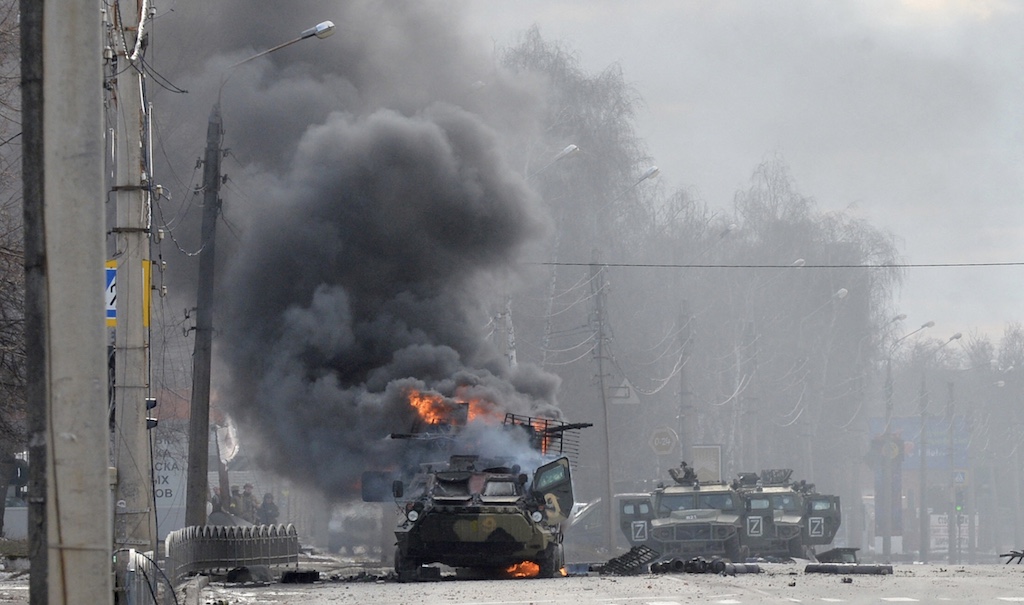BY Lorena Baires/Diálogo May 09, 2022
In Russia’s invasion of Ukraine, hackers have used video game scenes, allowing them to go viral, which simulate alleged attacks and advances by Russian troops in an attempt to change the narrative and disinform.
In response, the video game industry has curbed the creation of fake news and deepfakes (a portmanteau of “deep learning” and “fake”) taken from war scenes in its games to sow disinformation by suspending sales and cutting off Russia from its products. The gaming industry has also carried out acts of solidarity with specific initiatives and fundraisers for humanitarian aid.
A clip from War Thunder, an air, land, and naval combat video game, was one of the first to be used to disinform, with claims that the scene corresponded to an alleged anti-aircraft missile attack on troops in Ukraine, technology news site Xataka Mexico reported.
Scenes from Arma 3, another military tactical combat video game, were also manipulated to simulate a Russian fighter plane dodging heavy gunfire after dropping bombs in Ukraine, Spanish site 20 minutos reported.
Added to this are the popular deepfakes, montages of manipulated images or videos in which someone says or does things they never said or did.
Among the deepfakes that went viral is that of Russian President Vladimir Putin announcing via Twitter a supposed peace deal with Ukraine on March 16. Suspicious from the start, it was confirmed hours later that the image corresponded to a video from February 2022, when Russian troops had not yet invaded Ukraine.
Joint response
Wargaming, developer of the video game World of Tanks, announced on April 4 that it was suspending business operations in Russia and Belarus, which included shutting down its studio in Minsk, Belarus.
Epic Games, developer of the game Fortnite, reported that same day that it had raised $144 million together with Microsoft’s Xbox, to help organizations such as Direct Relief, UNICEF, the U.N. World Food Programme, the U.N. High Commissioner for Refugees, and World Central Kitchen.
“We stand in solidarity with the people of Ukraine […]. Effective immediately, players and teams in Russia and Belarus are ineligible to participate in the Apex Legends Global Series and EA SPORTS FIFA 22 Global Series,” Electronics Arts said in a March 16 statement.
For its part, Sony said on March 9th it was suspending all software and hardware shipments, as well as operations of the PlayStation Store in Russia. Calling for peace in Ukraine, the video game giant also announced the donation of $2 million to the United Nations High Commissioner for Refugees (UNHCR) and the international nongovernmental organization (NGO) Save the Children, “to support the victims of this tragedy.”
That same day, Nintendo confirmed its decision to postpone the release date of its Advance Wars 1+2: Re-Boot Camp, a military strategy game for Nintendo Switch, “in light of recent world events.”
Finally, U.S. tech giant Microsoft, owner of the Xbox console, confirmed on March 4th the suspension of sales of new products and services in Russia. The company also indicated that it was providing technology and financial support for key NGOs.
“Since the war began, we have acted against Russian positioning, destructive or disruptive measures against more than 20 Ukrainian government, IT, and financial sector organizations,” Microsoft said in a blog. “We have also acted against cyberattacks targeting several additional civilian sites. We have publicly raised our concerns that these attacks against civilians violate the Geneva Convention.”
Article originally published at: https://dialogo-americas.com/articles/gaming-industry-stops-russias-fake-news/#.Yn6OZlTMJD8
